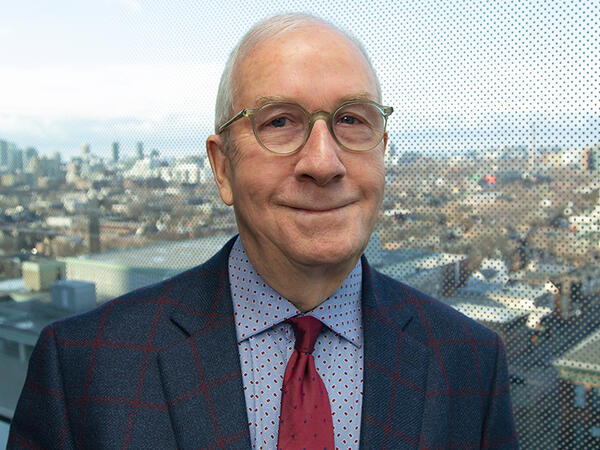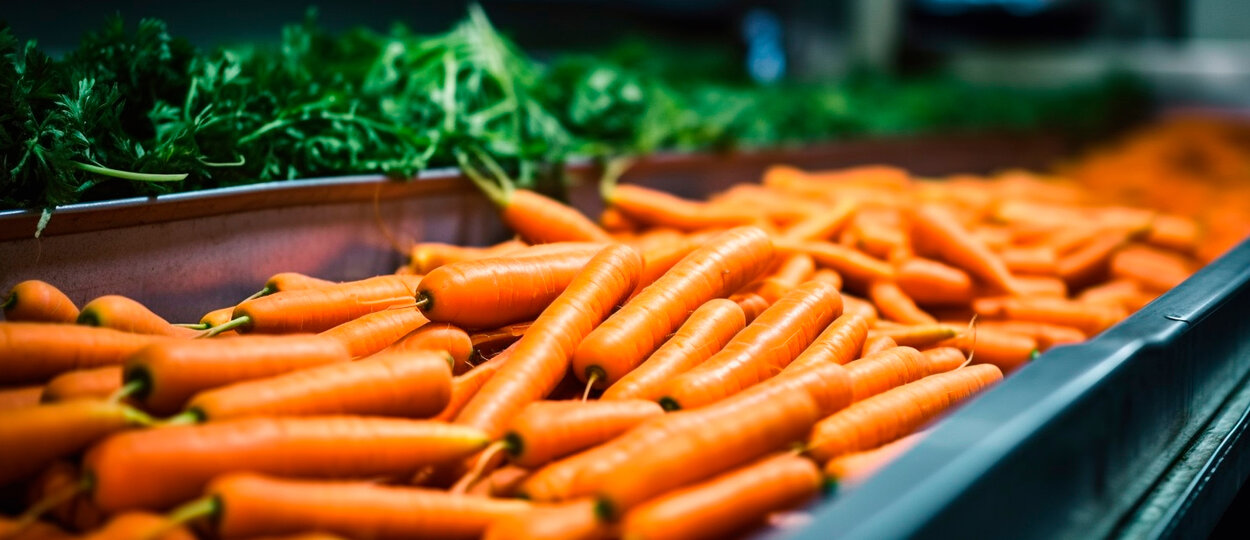Professor Jillian Kohler applies expertise in corruption in pharmaceutical system to examine global food supply
When we buy food at the grocery store or eat at a local restaurant, we trust that that the food has been produced and prepared safely and labelled accurately. But corruption at any stage in the food supply chain can result in contaminated or unsafe food.
“There are so many different actors involved in the food supply chain, and we assume that they are doing what they need to do to ensure the safety of our food. But because of its complexity and reach, it’s not always clear that those measures are being upheld,” says Jillian Kohler, professor at U of T’s Leslie Dan Faculty of Pharmacy. “If we want to protect the health of humans, domestic and wild animals, and the wider environment, the good governance of the global food supply is critical, and international standards designed to protect the global food supply system need to be adopted.”
“If we want to protect the health of humans, domestic and wild animals, and the wider environment, the good governance of the global food supply is critical, and international standards designed to protect the global food supply system need to be adopted.”
Kohler, who is the founding Director of the WHO Collaborating Centre for Governance, Transparency and Accountability in the Pharmaceutical Sector, is an expert in transparency, accountability, and corruption in the pharmaceutical sector. She was recently appointed by the WHO to serve as a steering committee member for its Global Network on Anti-Corruption, Transparency and Accountability in Health (GNACTA) and recently applied her expertise to an investigation of corruption risks and drivers in the global food supply.
“The food supply chain is more complicated and less controlled in some parts globally than the healthcare system, which is heavily regulated in most countries,” says Kohler, who is also a Senior Fellow at Massey College. “But what is the same is that bad actors will engage in corruption at the expense of public health and wellbeing to make profit. Corruption risk always exists. Recognizing that, we need to figure out ways to reduce those risks, especially when the impact of corruption is so detrimental particularly to the most marginalized members of the population.”
Over the past three years, Kohler worked with a large team of experts at the United Nations Office on Drugs and Crime as well as experts in public health, corruption, law, and regulations that represented government ministries from around the world and international agencies. The team conducted research and recently published an exploratory paper for the United Nations Office on Drugs and Crime (UNODC) that outlines the corruption risks in the global food supply chain and opportunities for governments and policymakers to prevent corruption.
What they found was alarming.
The research uncovered that every stage of the food supply chain – from production to transport to retail to preparation – is at risk of corruption. The corrupt acts could be as small as a single bribe to a food inspector or as large as a multinational company exerting influence on government officials to allow unsafe quantities of an ingredient in their products.
And the complex, international, interconnected nature of the global food supply means that corruption in one country can have an impact on consumers around the world.
“In Canada, we don’t locally source all our food. We depend on food networks around the world for the various food supplies that we import,” says Kohler. “Unfortunately, along the pathway to getting those foods, there are tremendous opportunities for corruption.”
Food safety also linked to environmental health
Ultimately, corruption in the food supply is related to both public health and environmental health. The World Health Organization estimates that every year 600 million people become ill and 420,000 people die after eating contaminated or unsafe food.
“If there is corruption in the food supply chain, you can have tremendously negative impacts on population health. One in 10 people become ill after eating contaminated or unsafe food every year,” says Kohler. “But we also need to recognize that food safety is linked with the environment. All our food has its origins in the environment, and if there is degradation in the environment, it shows up in our food. “
The report not only outlines corruption risks but calls on governments and international organizations to develop and enforce international standards and strengthen regulations.
“We don’t want to react to corruption. We want to prevent some of its risks. And that is not an easy task to take on because it is a global problem and because of the reach of our food supply and the number of actors in it,” says Kohler. “We need to pay more attention to where potential breaches can happen and where corruption can manifest and call upon governments to enforce standards at international, national, and local levels. Because if we don’t pay attention, we will affect the health and wellbeing of populations, and the environment.”
More News
Image

Grad to Watch: Jackie Fule Liu’s research focuses on better outcomes for diabetes patients
A recent PhD graduate, Jackie Fule Liu combines hands-on skill and big-picture thinking to help tackle diabetes care challenges.
Read More
Image

U of T community members recognized with Order of Canada
Congratulations to Dean Emeritus and Professor K. Wayne Hindmarsh on his appointment.
Read More
Image

Welcoming Ivy Lam as Academic Lead in Climate, Health & Sustainable Care
Assistant Professor Lam will guide the Leslie Dan Faculty of Pharmacy's efforts to embed environmental sustainability across the Faculty.
Read More
